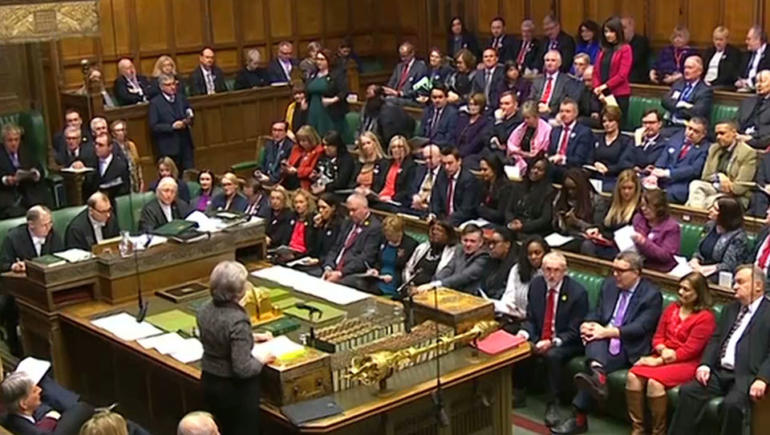In the U.K., celebrations are taking place all year to mark the one-hundredth anniversary of women over the age of 30 being given the vote. There were other restrictions too, like owning property or having a university degree.
Today, nearly a third of MPs in the House of Parliament are women, the highest number ever. And Britain has its second female Prime Minister. However, many believe women still face too many obstacles when it comes to getting to Parliament.
CGTN’s Catherine Drew reports.
Tulip Siddiq is one of the younger members of parliament. She is unusual in that she had her daughter while working as an MP.
“I had a baby two years ago while I was an MP and I really struggled actually. I struggled in terms of coming back to work, not having proper leave. I had some serious health conditions as a result of coming back to work so quickly, after having an emergency C-section. So, I do think there’s still a lot to be done,” said Tulip Siddiq, Labour Party MP for Hampstead and Kilburn.
Recently MPs backed proposals to allow a colleague to vote on behalf of a politician on maternity leave. Some are also pushing for six months paid maternity leave, which is currently informal, to be made official.
“We are legislating the heck out of other people, but actually we need to turn the magnifying glass onto ourselves a little bit, to see if it’s possible for anyone and everyone to get here. Could you be someone from any background, have some sort of caring responsibilities and still be an effective parliamentarian. The answer is ‘yes,’ but we need to think about making it more acceptable to look at the issues, but also try to challenge them as parliamentarians rather than always looking at other people,” said Mims Davies, Conservative Party MP & Chair All-Party Women in Parliament Group
Mims Davies says women MPs have been working on a cross-party basis on many issues of interest to them such as care for the elderly, online abuse, and children’s health screening, to name a few.
“There’s huge amount of cross-party stuff on things like air pollution and environmental issues, the stuff that people really care about. The day-to-day policy, quite often, there can be arguments over how you fix problems but there’s a lot of people agreeing on those problems,” said Davies.
As women mark the one-hundredth anniversary of acquiring the vote, reflections on how far women have gone in politics can help highlight how much further they want to go.
“There’s still a lot to be done in terms of improving representation of women in politics, but I think there’s cause to celebrate. At the end of the day, I may not agree with her values, but we do have a female prime minister, and I can say to my daughter that if she wants to be prime minister, she can look at the fact has had two female prime ministers,” said Siddiq.
The issue of maternity and paternity leave for lawmakers, proxy voting rights and child care facilities on site are being pushed by senior women MPs in the hopes of attracting more younger women into a system, which is still male-dominated. That is a culture they are determined to change.
Susannah Wellford discusses the benefits of women joining politics
CGTN’s June-wei Sum spoke with Running Start Executive Director Susannah Wellford about the benefits of women joining politics globally. Running Start is an organization dedicated to educating young women about the importance of politics, while giving them the tools to achieve greater political power.
 CGTN America
CGTN America
